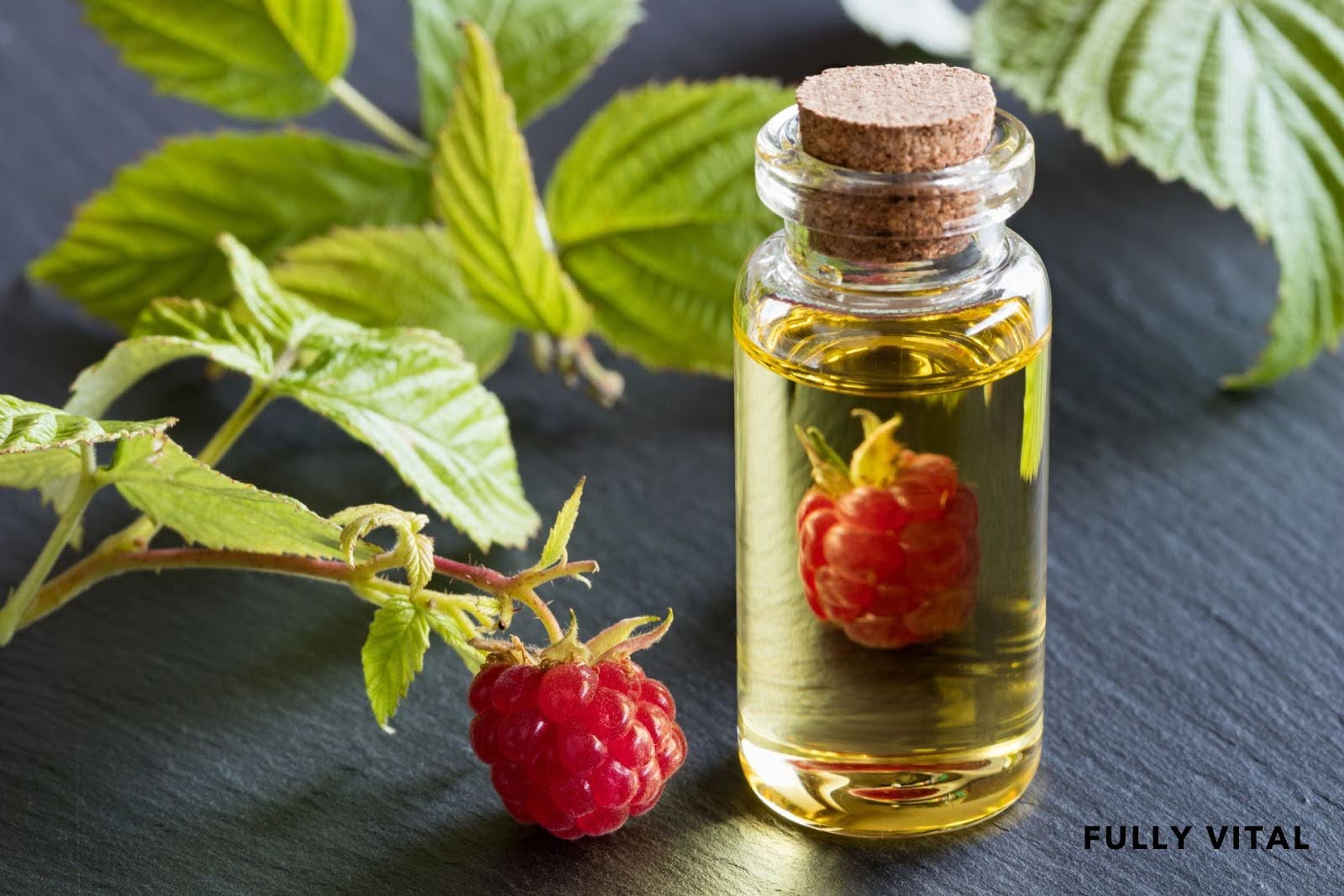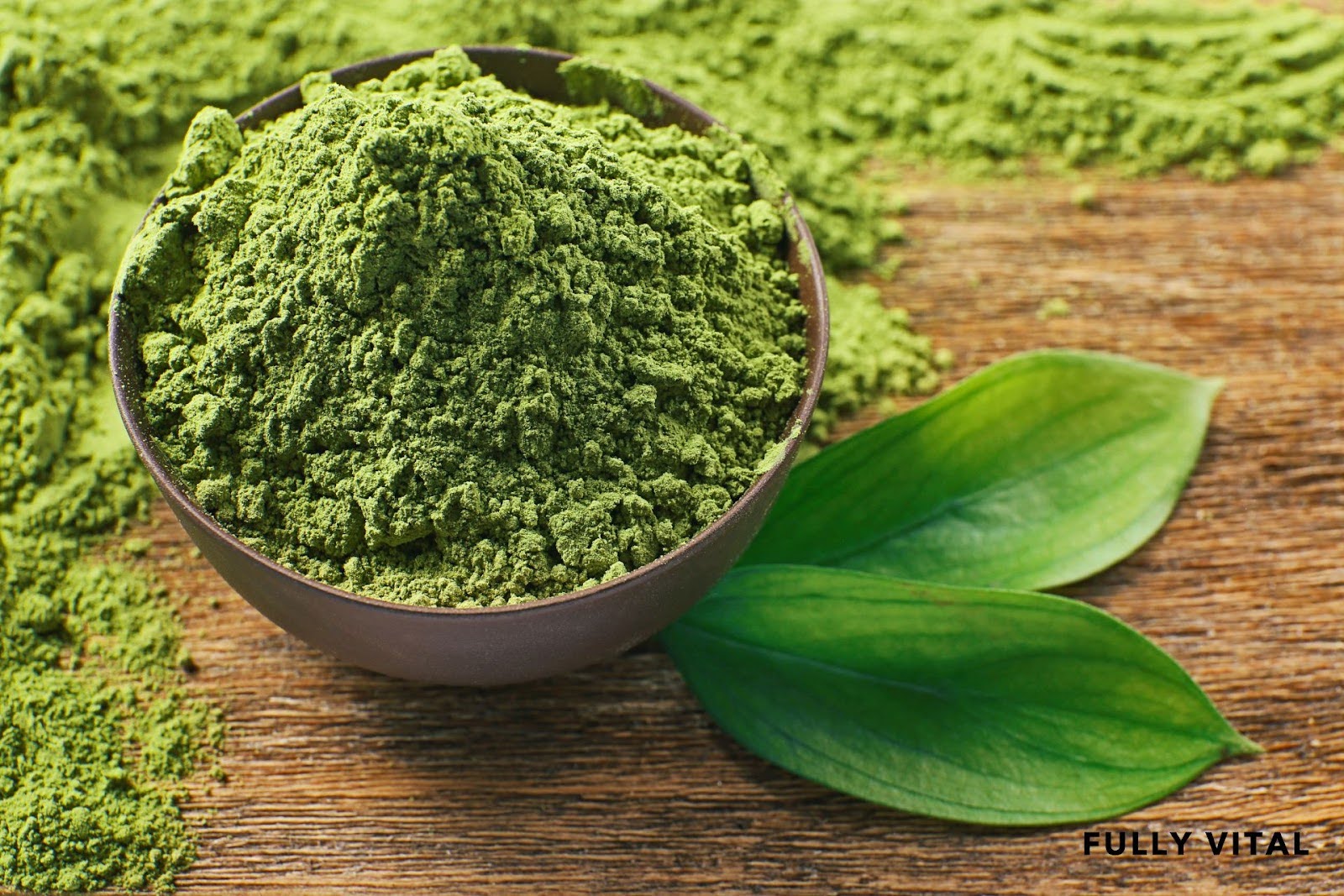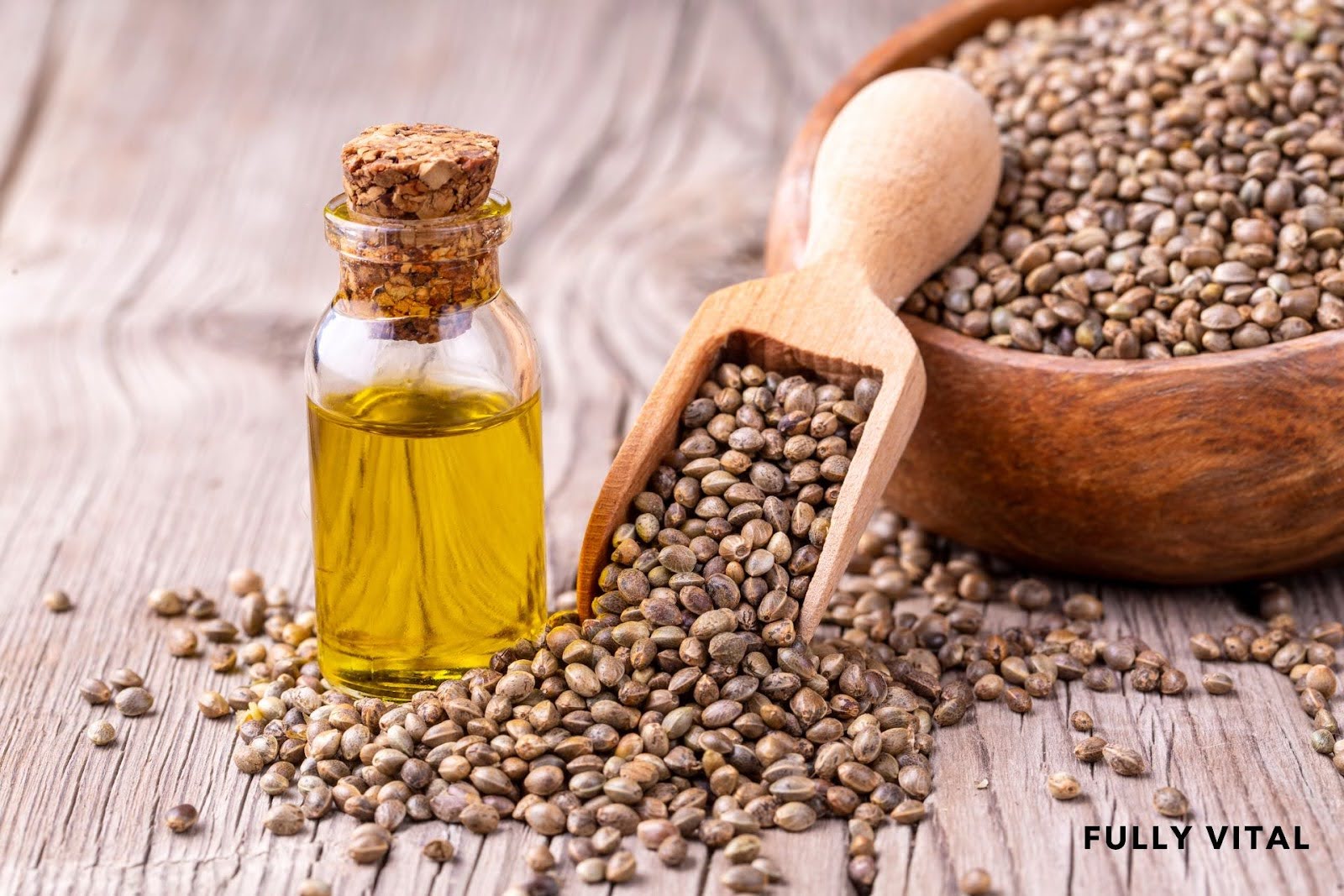
Raspberry Seed Oil: The Ultimate Natural Remedy For Damaged Hair
In the quest for healthier, stronger hair, natural remedies have emerged as a beacon of hope for many.
Among these, raspberry seed oil stands out as a remarkable solution for damaged hair.
Its unique blend of vitamins, antioxidants, and essential fatty acids offers a comprehensive approach to hair care, addressing issues from dryness and brittleness to UV protection.
This article explores the myriad benefits of raspberry seed oil, shedding light on how it can rejuvenate and protect your hair.
By understanding its properties, uses, and the science behind its effectiveness, you'll discover why raspberry seed oil might just be the natural remedy your hair has been waiting for.

I LOVE MY HAIR NOW
FullyVital hair serum and hair vitamins made tremendous improvements in my hair. I truly love my hair now.
Shop Hair ProductsWhat Is Raspberry Seed Oil?
Raspberry seed oil is derived from the seeds of the raspberry fruit, scientifically known as Rubus idaeus.
The oil is extracted through a cold-pressing method, ensuring that its nutritional value remains intact.
This process involves pressing the seeds without the use of heat, which helps preserve the oil's natural antioxidants, vitamins, and essential fatty acids.
Nutritional Profile And Key Components
Raspberry seed oil is rich in omega-3 and omega-6 fatty acids, which are crucial for maintaining healthy skin and hair.
It also boasts a high content of vitamin E, a powerful antioxidant that protects cells from damage.
Additionally, the oil contains vitamin A and other antioxidants, which together contribute to its ability to repair and protect the hair.
This unique composition makes raspberry seed oil an excellent natural remedy for damaged hair, offering nourishment, hydration, and protection against environmental stressors.
Why Is Raspberry Seed Oil Beneficial For Hair?
Moisturizing Properties
Raspberry seed oil is rich in omega-3 and omega-6 fatty acids, which deeply moisturize the hair, preventing dryness and brittleness.
It forms a protective barrier that retains moisture and keeps hair soft and hydrated.
Antioxidant Effects
Packed with vitamin E and carotenoids, raspberry seed oil offers strong antioxidant protection.
It shields hair from oxidative stress caused by environmental pollutants and UV radiation, preserving its health and shine.
Protection Against Uv Rays
Unique among natural oils, raspberry seed oil can absorb UV rays, offering natural sun protection for the hair.
This helps prevent color fading and damage from sun exposure, maintaining the hair's vitality and appearance.
How Does Raspberry Seed Oil Repair Damaged Hair?
Strengthening Hair Follicles
Raspberry seed oil's rich nutritional profile contributes to the strength of hair follicles.
The presence of vitamin A and essential fatty acids encourages healthy follicle growth, reducing hair loss and promoting thicker, stronger hair.
Enhancing Hair Elasticity
The elasticity of hair, crucial for preventing breakage, is significantly improved by the use of raspberry seed oil.
Its deep moisturizing effects increase flexibility, making hair more resistant to snapping and breakage during styling and brushing.
Reducing Split Ends And Breakage
Regular application of raspberry seed oil can help reduce the occurrence of split ends and breakage.
By nourishing and conditioning the hair, it improves overall texture and health, leading to less brittle and more resilient hair strands.

Can Raspberry Seed Oil Promote Hair Growth?
Stimulating Scalp Circulation
Raspberry seed oil may help in promoting hair growth by enhancing blood circulation to the scalp.
Improved circulation ensures that hair follicles receive a steady supply of nutrients and oxygen, essential for healthy hair growth.
Nourishing Hair Roots
The oil's rich nutritional content, including vitamins A and E, essential fatty acids, and antioxidants, nourishes hair roots deeply.
This nourishment strengthens the hair from the roots, potentially reducing hair loss and encouraging the growth of new hair strands.
How To Use Raspberry Seed Oil For Best Results?
Direct Application
For direct application, a few drops of raspberry seed oil can be massaged into the scalp and hair.
This method is particularly effective for deep conditioning, improving scalp health, and enhancing shine.
It's best applied to damp hair to maximize absorption.
Incorporating Into Hair Care Routine
Raspberry seed oil can also be added to shampoos, conditioners, or hair masks as a potent ingredient for extra nourishment.
Mixing a few drops into your regular hair care products can amplify their moisturizing and protective benefits, offering a convenient way to integrate this powerful oil into your routine.
Who Should Use Raspberry Seed Oil?
Ideal Candidates For Raspberry Seed Oil Treatment
Raspberry seed oil is suitable for individuals with dry, damaged, or brittle hair seeking natural moisturization and protection.
It's also beneficial for those looking to protect their hair from environmental stressors like UV rays and pollution.
Precautions And Considerations
While raspberry seed oil is generally safe for most hair types, it's important to perform a patch test before widespread use to rule out any allergic reactions.
Individuals with very fine or oily hair should use the oil sparingly to avoid weighing down the hair or causing excess oiliness.
What Are The Side Effects Of Raspberry Seed Oil?
Common Reactions
Raspberry seed oil is generally well-tolerated, but like any natural product, it can cause allergic reactions in some individuals.
Symptoms may include itching, redness, or rash on the scalp or skin.
How To Test For Allergies
Before incorporating raspberry seed oil into your hair care routine, it's advisable to conduct a patch test.
Apply a small amount of the oil to a discreet area of your skin, such as the inside of your wrist, and wait for 24 hours to observe any adverse reactions.
This precautionary step helps ensure compatibility and prevent allergic reactions.

Comparing Raspberry Seed Oil To Other Hair Oils
Raspberry Seed Oil Vs. Coconut Oil
While both oils offer moisturizing benefits, raspberry seed oil stands out for its UV protection and higher content of antioxidants.
Coconut oil, on the other hand, is known for its deep conditioning properties and is better suited for thicker hair types.
Raspberry Seed Oil Vs. Argan Oil
Argan oil is renowned for its ability to smooth frizz and add shine, making it ideal for styling and finishing.
Raspberry seed oil, with its protective antioxidants and UV filters, offers more in terms of hair health maintenance and protection against environmental damage.
Discover The Key To Rejuvenated, Luminous Hair With Fully VitalExplore the power of your hair with Fully Vital's innovative hair growth solutions— your key to addressing hair aging. We are dedicated to building a healthier, more confident connection with your hair through the enduring advantages our distinctive formulas offer. Here's why Fully Vital is a must-have in your hair care routine:
Step into the future of fuller, more voluminous hair that challenges age and radiates assurance. With Fully Vital, the path to renewed hair begins today. Initiate your quest to rejuvenate hair aging – start your Fully Vital experience now and enjoy endlessly youthful hair! |
Final Thoughts On Raspberry Seed Oil
Raspberry seed oil emerges as a versatile, natural remedy for various hair concerns, offering a unique blend of moisturizing, protective, and nourishing benefits.
Its rich content of antioxidants, essential fatty acids, and natural UV protection capabilities make it a valuable addition to any hair care routine.
Whether you're looking to revive damaged hair, protect against environmental stressors, or simply maintain healthy, vibrant locks, raspberry seed oil provides a potent, natural solution.
By selecting high-quality, organic raspberry seed oil and incorporating it into your hair care regimen, you can harness the power of nature to achieve beautiful, healthy hair.
Read Also:
Frequently Asked Questions About Raspberry Seed Oil
Can raspberry seed oil be used on colored hair?
Yes, raspberry seed oil is safe for colored hair.
It can actually help protect color-treated hair from fading due to its UV protection properties.
How often should I use raspberry seed oil in my hair care routine?
For best results, raspberry seed oil can be used 2-3 times a week.
Adjust frequency based on your hair's response and needs.
Is raspberry seed oil suitable for all hair types?
Raspberry seed oil is generally suitable for all hair types but is especially beneficial for dry, damaged, or brittle hair.
Those with very fine or oily hair should use it sparingly.
Can I leave raspberry seed oil in my hair overnight?
Yes, you can apply raspberry seed oil to your hair and scalp and leave it overnight for deep conditioning.
Ensure to cover your pillow to avoid stains.
Does raspberry seed oil help with scalp issues?
The anti-inflammatory properties of raspberry seed oil can help soothe scalp conditions such as dryness and dandruff, promoting overall scalp health.
Will raspberry seed oil make my hair greasy?
If used in moderation, raspberry seed oil should not make your hair greasy.
Start with a small amount and adjust as needed based on your hair's absorption.
Can raspberry seed oil protect hair from heat damage?
While raspberry seed oil provides some protection against environmental stressors, it's not a substitute for heat protectant products.
However, it can help nourish and condition hair, making it less prone to heat damage.
How does raspberry seed oil compare to other natural oils in terms of cost?
Raspberry seed oil can be more expensive than more common oils like coconut or olive oil due to its extraction process and nutritional profile.
However, its unique benefits often justify the cost.
Can raspberry seed oil expire?
Yes, like all natural oils, raspberry seed oil can expire.
Store it in a cool, dark place and check the expiration date or any changes in smell or color.
Is raspberry seed oil environmentally friendly?
Raspberry seed oil, especially when organic and cold-pressed, is considered an environmentally friendly option due to its natural extraction process and biodegradability.
Sources:
- Dzidek, A., Czerwińska-Ledwig, O., Ziembla, A., Matysiak, K., Zawadzka, K., Kulesa-Mrowiecka, M., Uher, I., Pałka, T., Poráčová, J., & Piotrowska, A. (2023). Impact of Raspberry Seed Oil, Sesame Oil, and Coconut Oil on Skin in Young Women. Cosmetics, 10(6), 169. https://doi.org/10.3390/cosmetics10060169
- Gledovic, A., Aleksandra Janošević Ležaić, Veljko Krstonošić, Djoković, J. M., Nikolić, I., Bajuk-Bogdanović, D., Jelena Antić-Stanković, Danijela Randjelovic, Sanela Savić, Filipović, M., Slobodanka Tamburic, & Snežana Savić. (2020). Low-energy nanoemulsions as carriers for red raspberry seed oil: Formulation approach based on Raman spectroscopy and textural analysis, physicochemical properties, stability and in vitro antioxidant/ biological activity. PLOS ONE, 15(4), e0230993–e0230993. https://doi.org/10.1371/journal.pone.0230993
- Truong, V.-L., & Jeong, W.-S. (2023). Hair Growth-Promoting Effects of Rosehip (Rosa canina L.) Seed Oil in C57BL/6 Mice. Journal of Food Science and Nutrition, 28(4), 411–417. https://doi.org/10.3746/pnf.2023.28.4.411








